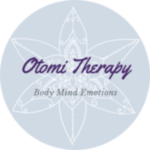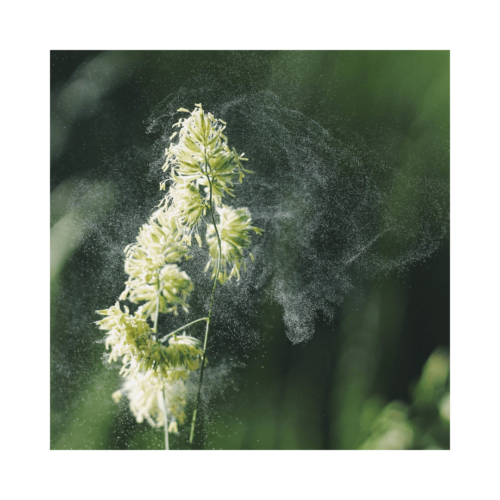Seasonal allergies correspond to an over-activation of the immune system to an external antigen. Following a first previous contact with the antigen in question, the body reacts uncontrollably. And often more violently in the presence of the same antigen. When do seasonal allergies appear, what are the symptoms and what are the natural remedies? Let’s take a look at the psycho-somatic and emotional causes of allergies.
Definition of the word “allergy
First of all, let’s start by defining the word allergy. According to the dictionary, here are two definitions:
- An abnormal reaction of the body to a previously encountered allergen introduced by inhalation, ingestion, injection, or skin contact, often manifested by itchy eyes, runny nose, wheezing, skin rash, or diarrhea.
- Hypersensitivity to the reintroduction of an allergen.
- A strong dislike or aversion, as toward a person or activity
ALLERGENIC POLLENS
Seasonal allergic rhinitis
This type of allergy is non-contagious and does not usually appear before the age of 3-4 years. It is however really triggered between 6 or 12-15 years of age. This allergic pollen rhinitis comes back every year in early spring. Note, however, that it is quite possible to have never been allergic and have it suddenly. Most often, it is related to a major change: home, living environment, major event.
The weather, first influencing factor
Indeed, the concentration of pollens varies from one year to the next, depending on the weather. A mild winter, a lot of rain and little sunshine are more favourable conditions for high pollen production. They spread more or less rapidly depending on the strength and direction of the wind.
Three pollen seasons
- February-March
At the beginning, we note the appearance of tree pollens: alder, ash, birch, hazelnut. Often coupled with food allergies and Rosaceae (apples, peaches, cherries, apricots…). Cedars until April.
- March-April
Birch, cypress, maple, poplar (may extend to end of June)
- April-May
Oak and plane tree
- May to August
Pollen from grasses, then from herbaceous plants.
- In Japan, we can add :
Rice plant or Ine in Japanese: May to October
Ragweed or Butakusa: August to October
Mugwort (Artemisia) or yomogi: August to October
SEASONAL ALLERGIES: symptoms, protection
Symptoms
- Hydrorhea (runny nose)
- Nasal congestion
- Watery eyes
- Repeated sneezing
- Coughing
- Red, itchy eyes
- Headache
- Itching: nose, throat, palate
- Sore throat
- Hoarse voice
- Wheezing
- Sleep disturbance and fatigue
- Irritability
- In some cases: asthma attacks and/or hives, eczema
Who is affected by seasonal allergies?
- Hereditary factor: people who have family members with allergies.
- Exposure to passive smoking, especially in early childhood.
- People exposed to high levels of air pollution such as pollutants, pesticides, fire smoke.
- It also seems that men are more sensitive than women. As well as older siblings according to some studies…
Protect yourself from pollens
For example, you can wear a mask and glasses to avoid contact. Some people wear gloves and scarves, but these should be washed regularly to limit contact with the allergen. Also, it is advisable to take a shower immediately upon returning home. Obviously, avoid mowing the lawn, keep your throat warm. Wash your hands frequently. Limit going out between 8am and 12pm when the pollen count in the air is at its highest. And finally, don’t forget to clean your air conditioners, heaters and humidifiers regularly.
Et comme toujours une alimentation équilibrée et de saison.In addition, remember to prepare your body and boost your immune system before spring (ideally 4 months before). With for example phycocyanine, echinacea tea, eat goji berries. And as always a balanced and seasonal diet.
Follow the pollen level in your area
PSYCHOSOMATIC CAUSES OF SEASONAL ALLERGIES
Allergies: a common problem
Indeed, seasonal allergies are a very frequent problem and more or less important depending on the region where you live. The aim here is to open your curiosity about the potential prospect of a psychosomatic origin for certain patients suffering from seasonal allergies. Without any generality, each “case” being different, which is at least my working approach.
Note that there are other types of allergies (skin, food) that are quite similar in the psychosomatic reading. The same goes for psycho-emotional treatments in kinesiology. However, I will not deal with this subject in this article and will concentrate on seasonal allergies mainly related to pollens.
Studies on psychogenic factors
One study in particular evaluated the role of psychogenic factors in both varieties of allergic rhinitis. “The investigation showed that psychogenic factors are almost irrelevant in hay fever. In contrast, their role is important in perennial allergic rhinitis.
Of course, as with any study, it is important to look at a range of sources to cross-reference and analyse them. For example if they are carried out by several study centres. Or if the survey is done on a large enough number of people to be representative etc.
Observe to understand
The first thing to observe is that the allergenic substance does not cause a reaction in most people. However, it is identified by your immune system as dangerous. Your body then signals a danger and protects you from it. You may wonder why your high sensitivity protects you and makes you want to get this hostile alarm signal? Is it in relation to a situation, or a person?
Beyond the obvious cause of too much pollen in the air, I invite you to look at the bigger picture. What are you really allergic to, and why does your body react in such a way as to create this irritation (sniffing, crying)? All of this without judgement, as there may be a psycho-emotional cause.
The trigger for allergies
Note that the initial trigger is often very small, sometimes even when your mother was pregnant with you. However, it is triggered later, with an event that is interpreted as similar in your mind. This is because your brain tends to associate elements with each other. For example, a specific meaning, with a word, with a food and be the cause of the allergy. Hence the uncontrollable and completely subconscious reaction.
Treatment of seasonal allergies with kinesiology
Desensitization with medicine was not effective? I would like to give kinesiology a try. It allows you to search your body’s memory and trace the subconscious cause. Then separate the association in your brain between the stimulus (sense) and the allergen. Several sessions may be necessary.
NATURAL TREATMENTS FOR SEASONAL ALLERGIES
Reducing symptoms through diet
- Plantain, rosemary and onion (remember to remove the germ) are plants with anti-inflammatory properties. They act a bit like antihistamines and limit the redness and itching of the eyes and nose. But also for sneezing and watery eyes.
- Limit dairy products that can cause chronic immune problems
- Add cold-pressed oils such as rapeseed, camelina, safflower… And fatty fish such as sardines and mackerel which are rich in omega 3 and reduce sensitivity to allergens.
Taking care of intestinal permeability
Start by taking care of your microbiota (gut flora) to support the regulation of the immune system. In case of intestinal permeability, allergens are allowed to enter the bloodstream along with other unwanted bacteria. It is therefore important to repair your intestinal mucosa with turmeric and the amino acid L-glutamine. It plays a role in protein synthesis and maintaining the integrity of the intestinal wall. Also for immune protection and the acid-base balance of the body.
Trace elements
In addition, if you are subject to seasonal allergies, it is advisable to strengthen the body against allergens. Some trace elements are involved in enzymatic reactions and help the body to defend itself. Others interfere with hormones and reduce inflammatory reactions. Therefore, consume foods rich in these trace elements during the winter.
- Zinc : found in meat, seafood and pulses
Zinc is involved in the multiplication of white blood cells and actively participates in the synthesis of proteins. It stimulates immunity and activates antibodies. It is also a membrane stabiliser and immunoregulator.
- Manganese: pine nuts, poppy seeds, oat flakes, hazelnuts, fresh pineapple, raw wheat bulgur, raw parboiled white rice, molluscs.
It modifies the atopic terrain by inhibiting the secretion of histamine (chemical component released by the immune system during an allergy). Also acts to strengthen mucous membranes weakened by the allergen.
- Magnesium: wholegrain cereals, dark chocolate, horsetail, dried fruit, onion, cabbage, alfalfa, kelp, wheat and barley sprouts, spinach.
Strengthens muscles and nerves and stabilises the body during an allergic reaction. It is a natural antihistamine due to its regulatory action on the release of histamine.
Vitamin C, anti-allergic and antihistamine
Anti-allergic and antihistamine, vitamin C can help you if you are prone to seasonal allergies. A course of vitamin C can trigger an immunoregulatory reaction. You can find it in blackcurrants, parsley, raw red peppers. But also in aromatic herbs, lemon peel and raw horseradish.
In addition, it acts as a direct antihistamine, anti-inflammatory and anti-edema agent at the level of the microcirculation. By acting as a corticoid, vitamin C also has notable anti-infectious and antiviral properties. When combined with Quercetin, these beneficial effects are increased.
Quercetin
Quercetin or quercetol is a flavonoid. It has antioxidant properties. It is a type of plant pigment that inhibits the action of histamine by acting on mast cells. These are the cells at the origin of allergic reactions.
You will find it in red onions and garlic, in the skin of apples. But also in red fruits such as grapes, berries, cherries. Or in citrus fruits, broccoli and green beans. But also in green tea and red wine.
Quail eggs
Very rich in nutrients, especially proteins, vitamins (including B1 and B2). Also minerals (including phosphorus and iron), as well as enzymes. Quail eggs contain large quantities of ovomucoid glycoproteins. These act on trypsin, one of the main elements of allergic reactions.
Essential oils
Tarragon, Roman or German chamomile, katafray for their anti-allergic and anti-inflammatory properties. Personally, I recommend inhaling it (2-3 drops on a handkerchief under the pillow for example). It calms allergic reactions. Punctually, it is very good.
In order to decongest the respiratory tract and make the action of essential oils, you can also do:
- A gargle with baking soda in the evening.
- Clean your nose with saline solution.
- Then do an inhalation of thyme in the evening before going to bed.
- Drink a glass of warm water in the morning with a little lemon in it.
Body practices and physical exercises
Practice meditation to relieve stress, do-in self-massage, dance… In short, take care of yourself to limit stress, which generally does not help your body to stay balanced! In fact, regular, gentle exercise increases the level of glutamine in the blood. Heavy stress, however, can lower it considerably.
If you are suffering from the physical consequences of allergy attacks, you can try reiki. This energy therapy is known to be an excellent treatment for pain reduction. In addition, it helps to alleviate the symptoms. Reiki therapy is nowadays part of the pain relief section of many hospitals around the world.
Brief therapy, kinesiology, so-called “alternative” medicines
For support in managing your allergies, do not hesitate to consult a therapist. In kinesiology, we work with the medical field and act as a complement. In particular, we advise on nutrition, and the balancing of the body, mind, emotions and biochemistry. In this way we can reduce your symptoms. Kinesiology looks for and acts on the root cause of your allergies, to progressively reduce them.
Did you learn some information from these articles?
⬇️ Please share it on SNS to help your friends ⬇️
And feel free to leave your comments below, ask questions or write to us at contact@bodymind-therapy.com

